
Photo: Sue Vincent
When I wrote Ravens Gathering, I knew it needed plotting carefully. There were several twists in it, and garden paths needed laying for the reader to be led up – difficult to do if you start with no real sense of direction.
So I decamped to Spain for a week and spent each morning on a balcony with a sea view in front of me and mountains either side. There are worse places to sit with a pen and A4 pad.
Over the course of that week, I wrote the outline. I started by writing out the events in chronological order, giving me a timeline. But, of course, that’s not the order you reveal things in. I also had to bear in mind that, although some of the events took place over decades, the core story needed telling over a few days. So it was like assembling all the ingredients, then deciding how to mix them together.
Something that helped me get the structure right was the decision to break the novel down into parts. That doesn’t work for all books, but it felt right in this case. Then I had to consider what titles to give the parts, because having sections headed “Part One”, “Part Two” etc. didn’t feel right.
The creative process isn’t always easy, so when you start looking for an answer and one pops into your head pretty much fully formed, you grab it with both hands.
A couple of titles came quickly and, in doing so, a theme emerged.
How to Win Friends
Most of you will be ahead of me on this as we’re conditioned to associate phrases and parts of phrases. So, if I said: “If it ain’t broke…” most people would add: “…don’t fix it.” For that reason, I’d expect a lot of you to read: “How to Win Friends…” and automatically think: “…and Influence People.”
It’s a phrase that’s fallen into everyday usage, but not everyone appreciates its origins. Published in the 1930s, it was one of the first self-help books. From a personal perspective, Dale Carnegie’s masterpiece is a must in my personal library, one that I’ve read several times from cover to cover, but also dip into periodically when I’m facing particularly difficult situations.
As for the title’s relevance to Ravens Gathering, it’s probably safe to say it’s used with a degree of irony for Part One.
Feel the Fear
A less iconic, but still influential, book was Feel the Fear and Do It Anyway by Susan Jeffers. As the title suggests, it acknowledges that none of us is without fear, and offers guidance on how to accept it but go ahead and do what we need to so we can achieve what we want in life. A great, motivational book, without being in the “rah-rah” category.
In this case, the chopped-down title seemed to fit with Part Two because of the growing tension and unease.
A Brief History
A Brief History of Time is hardly a self-help book, as it deals with scientific issues. So initially it felt like a bit of a cheat. But it considers the origins of our world and species so, in the final analysis, it felt an acceptable choice. More importantly, the truncated title for Part Three is suitably ambiguous, fitting nicely with my intention for the reader to see clues that aren’t there.
Families and How to Survive
Here I went back to a true self-help book. Families and How to Survive Them is another must for my personal library. Co-authored by John Cleese and his psychotherapist, Robin Skynner, it looks at psychological development from birth to old age, but in a very accessible way. I’ve found myself returning to it at various times in my life, and it’s helped me understand how and why I’ve felt and behaved the way I did.
As far as Ravens Gathering is concerned, by Part Four several family relationships have been established, but some of the characters are now facing real jeopardy, so taking most of the title felt very relevant.
Men Are From Mars
Although a much more recent book than Dale Carnegie’s, a lot of people will be aware of Men Are From Mars, Women Are From Venus by John Gray. Published around 25 years ago, it explores how men and women differ in their behaviours and are thus something of a mystery to each other. By giving us a better understanding, it can help us appreciate our life partners better – though it’s fair to say that I probably should have read it more often.
The title of the final Part of Ravens Gathering hints at a possible reason for everything that’s happened so far, but maintains sufficient ambiguity to not give the game away.
Finding titles for the parts of the book was hard initially, but the opportunity to incorporate a theme seemed a good idea at the time. Only those who’ve read the book can judge whether the theme worked, and it’d be interesting to hear your thoughts. For those who haven’t, your comments on the concept would be welcome.
Find and follow Graeme
Website/Blog Facebook Author Page Troubadour (publisher)
 About the author
About the author
Graeme Cumming lives in Robin Hood country. He has wide and varied tastes when it comes to fiction so he’s conscious that his thrillers can cross into territories including horror, fantasy and science fiction as well as more traditional arenas.
When not writing, Graeme is an enthusiastic sailor (and, by default, swimmer), and enjoys off-road cycling and walking. He is currently Education Director at Sheffield Speakers Club. Oh yes, and he reads (a lot) and loves the cinema.
Martin Gates left his village fifteen years ago because he didn’t belong any more. Now he’s back, and looking for answers. The problem is, no one wants to hear his questions. Well, maybe Tanya McLean, but she has an ulterior motive and her husband won’t like it.
In the meantime, a horrific accident leaves a farm worker fighting for his life; a brutal killing triggers a police investigation; and even the locals are starting to fall out amongst themselves. Now the villagers have some questions of their own. Is it possible that Martin’s arrival is more than a coincidence? Do they really want reminding of what happened in the past? How has a whole farm disappeared from the map? And why are ravens gathering in Sherwood Forest?
As Martin makes his presence felt, it also becomes clear that he isn’t the only visitor. As the ravens gather and darkness descends, the time is drawing near for history to repeat itself…
Introducing characters with deep and unsettling secrets, Ravens Gathering is a gripping thriller, interwoven with horror and fantasy, that demonstrates how you should never take things at face value. It draws the reader in with neck-prickling tension as the layers are gradually peeled back. Only as the story reaches its heart-pumping climax is the shocking truth revealed. Ravens Gathering will appeal to fans of tense and creepy reads, and those who enjoy complex stories that keep you guessing. Its blend of horror and fantasy is reminiscent of the works of Stephen King, Dean Koontz and Graham Masterton.
“In an insignificant backwater village in north Nottinghamshire, generations of shame bubble below the surface till the return of a prodigal son. Will his presence bring release or destruction? Is he for good or evil? What will the clash between locals and incomers force to the surface and can his family accept his return after so many years?
This book is a mystery. The characters oscillate between hero and villain with every turn of the story line as the suspense builds to a shattering climax.” Extract of Amazon review by BEEJ.
Available as an ebook via Amazon.com and Amazon UK
and in paperback from the publisher’s website, Troubadour.


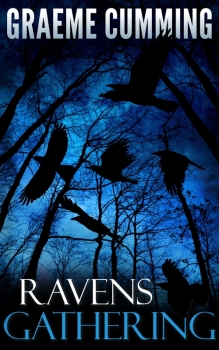

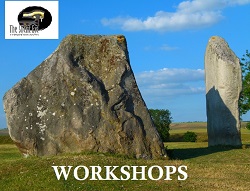







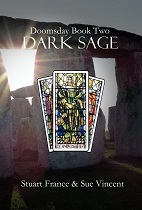








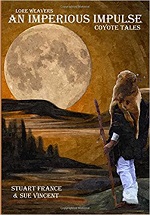


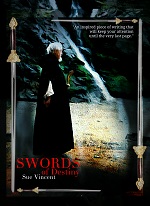










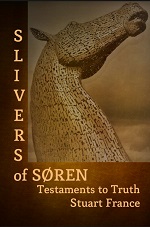





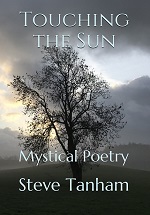

Love Graeme! This post is fab!
LikeLiked by 2 people
🙂
LikeLike
Who doesn’t, Lucy? Thank you for your kind words!
LikeLiked by 2 people
😀
LikeLike
A lovely post about Graeme and his writing. The extract was very intriguing.
LikeLiked by 2 people
Thanks, Robbie. Intrigued enough, though?
LikeLiked by 2 people
It comes reccommended 😉
LikeLiked by 2 people
Yes, I have ordered it from Amazon!
LikeLiked by 2 people
When you say you’ve ordered it from Amazon… E-book or paperback? If the latter, click on the link below to read a post, then drop me an email via the website.
http://www.graemecumming.co.uk/ravens-gathering-amazon-pricing/
LikeLiked by 2 people
Oh dear, Graeme, I did order it as a paperback. I don’t like reading ebooks. The reason I order from Amazon is that any books I order from abroad have to be couriered to South Africa. This is quite expensive but I pay for this service as our postal service is a disaster and it takes three to four months for a book to arrive if it comes via our snail mail. Most individuals cannot understand this and if I ask them to courier (and request to pay) they still send via snail mail and sometimes the book never arrives. So sorry if I cost you money but, hopefully, you will understand why!
LikeLiked by 2 people
I’m sorry, Robbie. For some reason, I thought you were in the UK, otherwise I wouldn’t have mentioned it. Frankly, I’m delighted to have a reader (something I think I commented on in another post of mine you’ve seen). It sounds more like I’ve cost you money if you’re having to have the book couriered. Just hope it’s worth it when it arrives.
LikeLiked by 2 people
Your book sounds awesome and I am looking forward to receiving and reading it.
LikeLiked by 1 person
Oops! No pressure then…
LikeLiked by 1 person
Enjoyed reading this interesting guest post from Graeme. 🙂
LikeLiked by 2 people
Thanks, Marje. Glad you enjoyed it.
LikeLiked by 2 people
How lovely that you went off to Spain for a kind of writers retreat to get it done! One to put on my bucket list Graeme. 🙂
LikeLiked by 2 people
I think the trick, Marje, is to have no children, and a partner who’s prepared to let you get on with it – on the proviso that you do something holiday-related in the afternoons and evenings. I have a lovely spot in Portugal in mind for next time!
LikeLiked by 3 people
Sounds wonderful Graeme and Portugal is heavenly. 🙂
LikeLiked by 2 people
What’s wonderful, Marje? Having no children? It makes a big difference!
My spot in Portugal is near the Costa Nova and at the top of a mountain. Not for people who are looking for a lot of social interaction!
LikeLiked by 2 people
Perfect for writing I expect – no children, and no distractions!
LikeLiked by 2 people
Reblogged this on graemecummingdotnet and commented:
I was delighted to be invited recently to share some thoughts on Sue Vincent’s blog. Sue herself has plenty to say on a range of subjects, all with a lot of thought attached to them. If you haven’t come across her yet, I’d encourage you to go take a look.
For now, though, here’s the outcome of my own stream of consciousness…
LikeLiked by 2 people
I have read this novel and loved it. xx
LikeLiked by 1 person
Not my normal genre…but I did too 🙂 xx
LikeLiked by 2 people
That’s always reassuring, Adele. Thanks for sharing that. Could I be cheeky and ask, if you haven’t already, if you could leave a review somewhere. They are like gold dust and I am on the cusp of tipping over into a level that should prompt Amazon to increase their promotions.
LikeLiked by 2 people
I think I did one but i’ll check and leave one if I haven’t. I know what you mean about reviews they are like gold dust.
LikeLiked by 2 people
That’s greatly appreciated, Adele. Many thanks
LikeLiked by 1 person
I always enjoy hearing about the thought process that goes into structuring a book, especially when there is so much complexity. Good luck with your book, Graeme. It sounds thrilling 🙂
LikeLiked by 2 people
Thanks for your comments. Much appreciated
LikeLiked by 2 people
I’m reading it at the moment (not too far to go), so I found the insights into the writing process highly interesting.
LikeLiked by 2 people
Thanks, Esther. I’ll be interested to hear what you think about the book when you’ve finished it.
LikeLiked by 2 people
Well it’s a splendid book and as he knows he’s a top bloke so no surprise the writing process is so engaging. Looking forward to the next one. …
LikeLiked by 2 people
You’re too kind, Geoff. End of the year, if everything goes to plan.
LikeLiked by 1 person
I enjoyed reading the breakdown of Graeme’s structuring of what seems an intriguing book. Adding to my big fat TBR! 🙂
LikeLiked by 1 person
Thanks, Debby – I think we’ve all got incredibly fat TBRs!
LikeLiked by 1 person
Fact! 🙂
LikeLike
Reblogged this on Viv Drewa – The Owl Lady.
LikeLike
I’ve had this for too long. I’ve got to move it up on my TBR list. As you know, I ❤ the cover. (Speaking of TBR lists…I think I'll add Feel the Fear and Do It Anyway to mine.) Nice to see you at Sue's, Graeme!
LikeLiked by 2 people
Only just spotted your comment, Sarah, so apologies for not responding earlier.
Personally, I can’t understand why you didn’t just jump in and devour it when it arrived, Sarah. Clearly the cover wasn’t enough to draw you all the way in!
I listened to Feel the Fear as an audiobook many years ago. I haven’t heard or read it recently, but I’m sure the principles are still sound. I can recommend it – but you’ve got another one to read first!
LikeLiked by 1 person